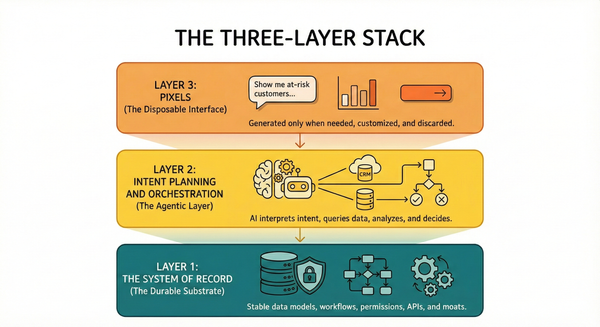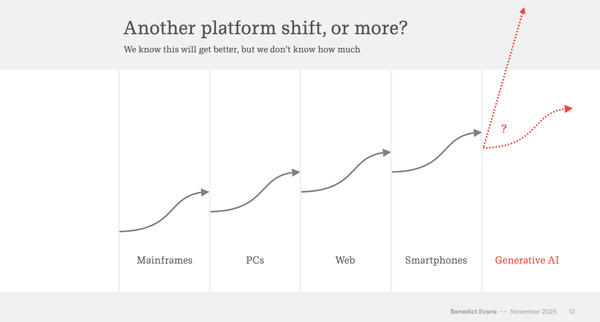Navigating the Rapid Evolution of AI Technology

In the ever-changing landscape of technology, one of the most significant challenges we face today is keeping up with the rapid advancements in Artificial Intelligence (AI). It's easy to feel overwhelmed by the constant influx of new tools, features, and capabilities that seem to emerge daily. Many of us find ourselves grappling with a sense of, "This is too much, too fast." However, the reality is that these changes aren't going to slow down. Instead, they'll only accelerate. So, how do we adapt and thrive in this environment?
First and foremost, it's crucial to acknowledge that AI, in its current form, is still relatively new. This unfamiliarity breeds a certain level of discomfort, as we all try to get a handle on what it means for us personally and professionally. But here's the thing—trying to achieve perfect understanding of every new development in AI before moving on to the next is a futile exercise. The pace of change is simply too fast.
Instead, what I suggest is a shift in mindset. Aim to develop a rough understanding of new AI developments. Get "okay" at grasping the basics, then move on. The idea is not to master every detail but to maintain a general awareness of what’s happening so that you’re not caught off guard when the next big thing arrives.
To illustrate this point, let's look at AI voice technology as an example. Right now, most people haven't had much direct experience with AI voice tools. Sure, we've all heard about them, and maybe we've even experimented with some basic voice assistants. But the true potential of AI voice—especially when integrated with large language models (LLMs)—is just beginning to unfold.
One of the key developments on the horizon is the ability to interact with LLMs through voice in a way that feels natural and fluid. Imagine being able to engage with AI like a companion, asking it to help with tasks as you work on something else, without needing to stop what you're doing. This kind of seamless interaction hasn't become mainstream yet, but it's coming. And when it does, it will be a game-changer.
However, it's not all sunshine and roses. As with any powerful technology, AI voice comes with its own set of risks. For example, the ability to clone voices has already been exploited to create disinformation. In the political arena, this has been used in ads that manipulate voters by making it seem like a candidate said something they didn't. The business world isn't immune either. A recent case involved a Ferrari executive who was duped by a voice-cloned call that seemed to come from his CEO, discussing mergers and acquisitions. The only thing that saved him was his suspicion that something didn't feel quite right.
This brings us to a critical point: If you're only focused on the AI applications that are currently available, you're already behind. You need to be thinking about what's just around the corner. What's the next technology that's going to disrupt your industry? And how can you prepare for it, even if you don't fully understand it yet?
But let's not lose sight of the positive potential here. AI voice has the power to revolutionize accessibility. Imagine a world where anyone, regardless of their reading ability, can access written information through natural-sounding, AI-generated speech. This isn't just about convenience—it's about breaking down barriers and making information truly accessible to everyone.
Furthermore, the ability to have documents read to you in the voice of the person who wrote them adds a new dimension to how we consume information. It’s not just about hearing the words; it’s about capturing the tone, the emphasis, and the intent behind them. We're close to achieving this, and it’s something we should be excited about.
So, what should you be doing right now? The answer is simple: stay curious. Keep an eye on the technologies that are starting to emerge, even if they seem a bit rough around the edges. You don’t need to master them, but you do need to have a general sense of where they’re headed. This will give you a head start when they inevitably become mainstream.
Remember, AI doesn't arrive fully formed. It comes in waves, often in ways that are hard to predict. It’s okay to feel a bit lost at times. What's important is that you don't get too comfortable with the tools and technologies you already know. The next big thing is always just around the corner, and the sooner you start thinking about it, the better prepared you'll be.
In conclusion, navigating the rapid changes in AI technology isn't about mastering every new tool or development. It’s about staying adaptable, keeping your curiosity alive, and being willing to learn quickly and move on. The landscape of AI will continue to evolve at a breakneck pace. By embracing this reality and staying focused on what’s coming next, you’ll not only survive in this new world but thrive in it.
So, take a moment to reflect on where you are right now. How comfortable are you with the current state of AI? And more importantly, how ready are you for what’s coming next? The future of AI is filled with both challenges and opportunities. It’s up to you to decide how you’ll respond.





